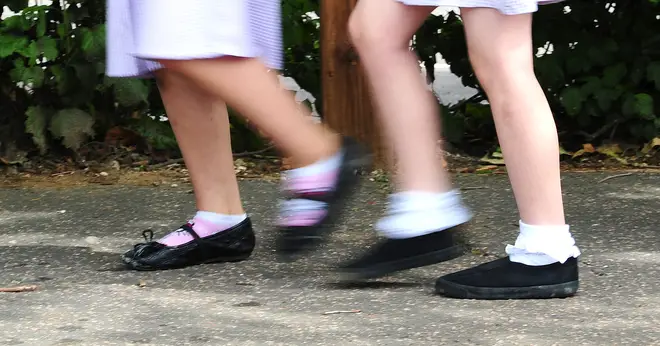
Ian Payne 4am - 7am
23 September 2019, 17:30

Children born later in the school year are more likely to be diagnosed with depression than their older classmates, new research suggests.
Younger children in the school year may have a higher chance of being diagnosed with depression by the age of 16 than older children.
New research has used a sample of one million young people in the UK and found that children born in the first quartile of the year (September to December) have a 30% increased risk of depression compared to the fourth quartile (June to August).
Study lead author, Jeremy Brown from LSHTM, said: "We've known for a while that children who are young in their school year are more likely to have hyperactivity disorders and tend to do less well academically than older children.
"However, we believe this is the first evidence of an association between younger relative age in the school year and increases in the diagnosis of depression."
The study was conducted by the London School of Hygiene and Tropical Medicine, and say the findings should be used to conduct further research into the causes of depression in schoolchildren and how it can be prevented.
No research was conducted into the reasons behind these differences.

Scientists compared the rate of GP recording of ADHD, intellectual disability and depression in these groups, adjusting for calendar year, socioeconomic status and sex.
The researchers divided all school age children into four age categories based on their age within the school year.
The differences between boys and girls was none, however ADHD appeared to have a stronger association in children under 10.
However, clear differences came to light between children in the oldest and youngest percentiles of the school year.
The scientists say there are a number of potential interventions to address the differences but limited evidence on their effectiveness exists.
They highlight that in some countries parents of relatively young children can defer school entry for a year, but parent choice has the potential to increase socioeconomic inequality.
Each year around 800,000 children start primary school in the UK.
Based on the results of the study the researchers would predict that amongst these children, about 500 more of the youngest in the year might be diagnosed with depression compared with the oldest. This is over the whole course of their schooling up to 16 years old.
The resarchers suggested that younger children may find it harder to concentrate, leading to over-diagnosis of hyperactivity.
Other issues such as inferior academic performance and poorer peer relationships can also lead to mental health problems.
Professor Ian Douglas, senior author from LSHTM, said: "Just 1% of the youngest quartile in a school year will be diagnosed with depression by age 16, and fortunately there is an increasing awareness about mental health as a priority.
"However, we should focus on reducing the number of children affected.
"Better recognition of this as a problem might help."